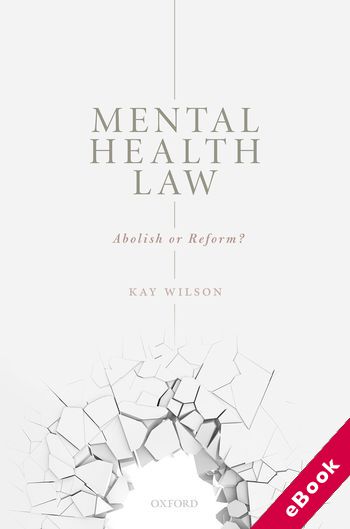
The device(s) you use to access the eBook content must be authorized with an Adobe ID before you download the product otherwise it will fail to register correctly.
For further information see https://www.wildy.com/ebook-formats
Once the order is confirmed an automated e-mail will be sent to you to allow you to download the eBook.
All eBooks are supplied firm sale and cannot be returned. If you believe there is a fault with your eBook then contact us on ebooks@wildy.com and we will help in resolving the issue. This does not affect your statutory rights.
The debate about whether mental health law should be abolished or reformed emerged during the negotiations of the Convention on the Right of Persons with Disabilities (CRPD) and has raged fiercely for over a decade. It has resulted in an impasse between abolitionists, States Parties, and other reformers and a literature which has devolved into 'camps'. Mental Health Law: Abolish or Reform? aims to break new ground by cutting through the confusion using the tools of human rights treaty interpretation backed by a deep jurisprudential analysis of core CRPD concepts - dignity (including autonomy), equality, and participation - to gain a clearer understanding of the meaning of the CRPD and what it requires States Parties to do. In doing so, it sets out the development of mental health law and is unique in tracing the history of the abolitionist movement and how nad why it has emerged now. By digging deeper into the conceptual basis of the CRPD and developing the 'interpretive compass' based on those three core CRPD concepts, the book aims to flesh out a broader vision of disability rights and move the debate forward by evaluating the three main abolition and reform options.
Drawing on jurisprudential and multi-disciplinary research from philosophy, medicine, sociology, disability studies, and history, it argues compassionately and sensitively that mental health law should not be abolished, but should instead be significantly reformed to minimize coercion and maximize the support and choices given to persons with mental impairments to realize all of their CRPD rights.